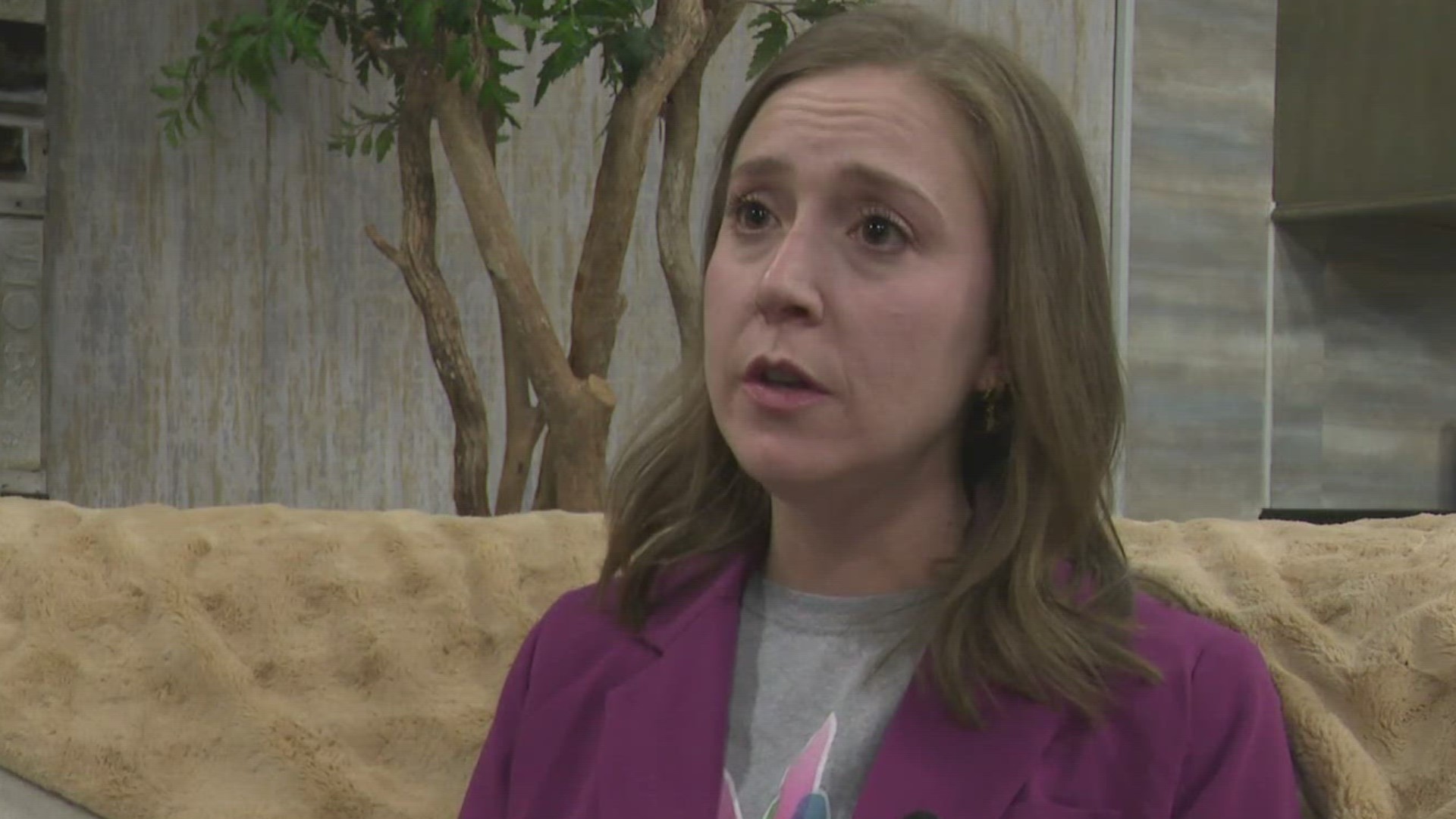WEST DES MOINES, Iowa — Feb. 29, the rarest day of the year, marks the celebration of Rare Disease Day. The goal of the day is to raise awareness and support as in the United States, one in 10 people are diagnosed with a rare disease.
A rare disease is a disease that is diagnosed in less than 200,000 people.
For Claire Richmond, she is one of an estimated 5,000 people, according to the National Institute of Health.
Seven years ago, Richmond was diagnosed with acute hepatic porphyria, which affects the production of a component in hemoglobin, which carries oxygen in blood. It took her 19 years to receive the diagnosis, which is not uncommon.
"I felt so much relief," Richmond said. "I felt like this heavy blanket of shame had been lifted off of my shoulders."
One of the main issues in getting diagnosed is the rarity of these diseases, and medical practitioners often look at the more obvious possibilities.
"They're trained when they hear hoof beats to think of a horse," Richmond said. "But there are zebras that exist in the world, too, and every zebra looks a little different."
"There are many rare diseases that need high suspicion from the clinician side," said Dr. Mustafa Eldadah, a pediatrician at MercyOne Des Moines Medical Center. "When we do our examination, when we take history, we try to think of what else could it be."
But with thousands of diseases, it takes time to correctly diagnose a patient.
"The individual may become an adult before the manifestation [of the disease] will show up and the person will be diagnosed," Eldadah said. "Some of the conditions may take, I would say, years before they are diagnosed."
During those years between the first symptoms showing up, and a proper diagnosis, medical practitioners will often provide misdiagnoses, leading to years of questions and feelings of isolation.
"A lot of people go through misdiagnosis, just searching for answers for a long time," Richmond said. "You get a mental health diagnosis, instead of a rare disease diagnosis, and you think, like, 'Am I just making this up? Is this actually in my head?'"
Now that Richmond has answers, she shares them with others and found a strong community.
"I learn more from my friends with Porphyria than I do from my physicians or any studies that I read," Richmond said. "And I also learn more from my own lived experience, so being able to share that with others is so huge."

